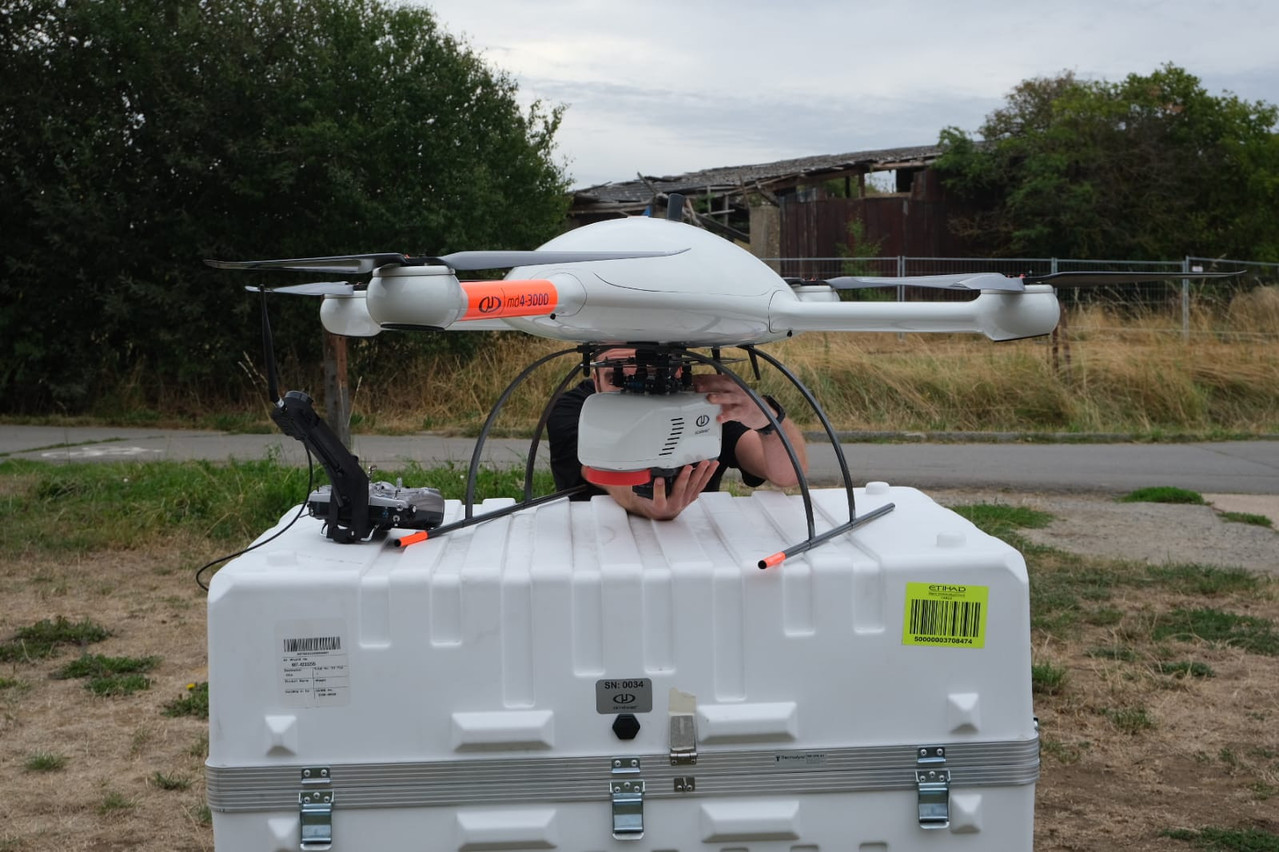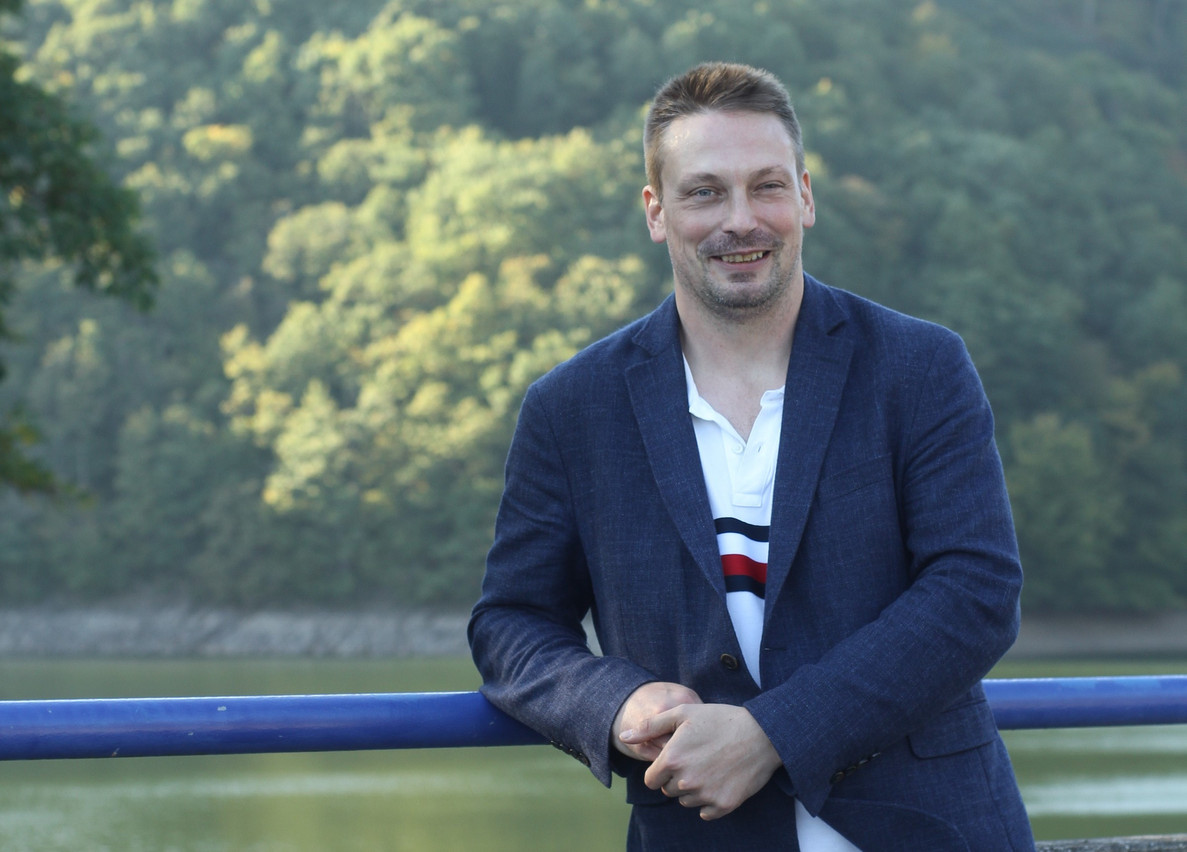On the RSS-Hydro website, Guy Schumann is pictured with the caption “CEO and founder”, but when I asked him to introduce himself he said this and only this: “I am essentially what you would call a scientist, based on my track record in academia.”
Back on the website, the job titles of his colleagues are—from start to finish—senior scientist; environmental engineer; applied physicist; geoinformatics and IT; geospatial scientist and drone pilot; and intern. Not a marketing manager, SEO specialist, or “growth hacker” among them. Not even one.
Schumann holds a PhD in geography, remote sensing, and flood hydrology, and despite the title of CEO his world is still very much the academic one. He remains affiliated with two universities, respectively in the US and the UK, participates frequently in conferences, and even supervises and examines PhD students.
In all, it sounds less like a company than it does some kind of microuniversity. In fact, although it operates as a Sarl (private limited liability company), RSS-Hydro is also an accredited private sector research institution, a status awarded by the Luxembourg economy ministry. It therefore qualifies for funding opportunities from the national research fund (FNR), for example to pay postdocs to help with research activities. The company is accountable to this status, meaning that it has to publish regularly and remain active in academia.
But it’s also a business
“As a company, we’ve taken [our accreditation as a private sector research institution] into our business model, almost,” said Schumann. “We do R&D projects, the results of which often feed into some kind of product or service that we can commercialise.” RSS-Hydro operates on three pillars, he explained.
The first pillar comprises consulting services for clients on areas like flood modelling and water risks, as well as flood risk mapping based on climate change impacts on a very local scale, for which the company’s clients are often municipalities in Luxembourg.
The second pillar is all about drones, which RSS-Hydro uses not only to assess water-related risks but also to do health mapping for the agricultural sector and winemakers.
The third pillar—much of which feeds into the first two—is R&D activities. “This really comes from my background,” said Schumann, “and also the other scientists on the team.” As a result of this approach, large chunks of time and effort are spent preparing proposals to various funding bodies. Schumann commented that his team’s acceptance rate is very high, at around 60%.
Not all the R&D projects result in new products or services, however. But those that don’t are nevertheless time not badly spent: two or three papers might have been published together with any collaborating organisations (who may have gotten something more out of it), and the researchers will still have gotten paid.

One of RSS-Hydro’s drones. Photo: Guy Schumann
The new culture of collaboration
Unlike many companies—and particularly tech companies—in recent history, RSS-Hydro is not interested in patenting its intellectual property or snatching market share from its rivals. In this, it chimes with an emerging movement in the corporate world towards noncompetition, a value that until recently was sacrilege to entrepreneurs. “This collaborative sentiment between companies… it’s big,” commented Schumann. “It’s really big.”
RSS-Hydro works closely on many projects, for example, with another Luxembourgish company called WEO. “But rather than trying to be a competitor,” Schumann said, “which—if you’re talking about traditional business, we would be very clear competitors—we collaborate. We see that we have business activities that could be beneficial for both.”
The sentiment isn’t limited to startups and newcomers, either. Schumann reports that when they submit proposals to the European Space Agency, for instance, they often go in partnership with a big company that initiated contact with RSS-Hydro, not the other way around. “So it’s also in big corporates. It’s really coming.”
RSS-Hydro’s collaborators are big and small, public and private. Besides WEO, they include CEH UK, Planet Labs, the European Space Agency, the University of Luxembourg, and the Luxembourg Institute of Science and Technology.
Into the academic fold
Interestingly, a knock-on effect of this attitude has been a change in academics’ perception of the private research sector, according to Schumann. “The whole scientific and academic community is starting to be more accepting of these kinds of companies,” he commented. Academics have traditionally been dismissive and suspicious of such firms, since commercialisation has sharply clashed with the ethos of free information and open-access material prized by the public research community.
“Now, that’s changing because companies like ourselves and other younger companies are actually pushing, more than academia, towards openness,” said Schumann. “No IPs, everything open, nothing protected.”
“Over the years,” he went on, “we have realised that, yeah, anybody can use open-source information—but it’s a very different thing to make a business out of it. So that’s the hard bit, that’s what is harder to copy.”
Of course, commercialisation will not lose its potential to pollute academia’s pursuit of new knowledge and technology, but in the short-term the shift appears to be promising in the context of the climate crisis. “We need the private sector to come in with innovation and science, to fuse with the academic sector, because otherwise we [as a civilisation] are never going to reach our [sustainability] goals. It won’t be possible.”
